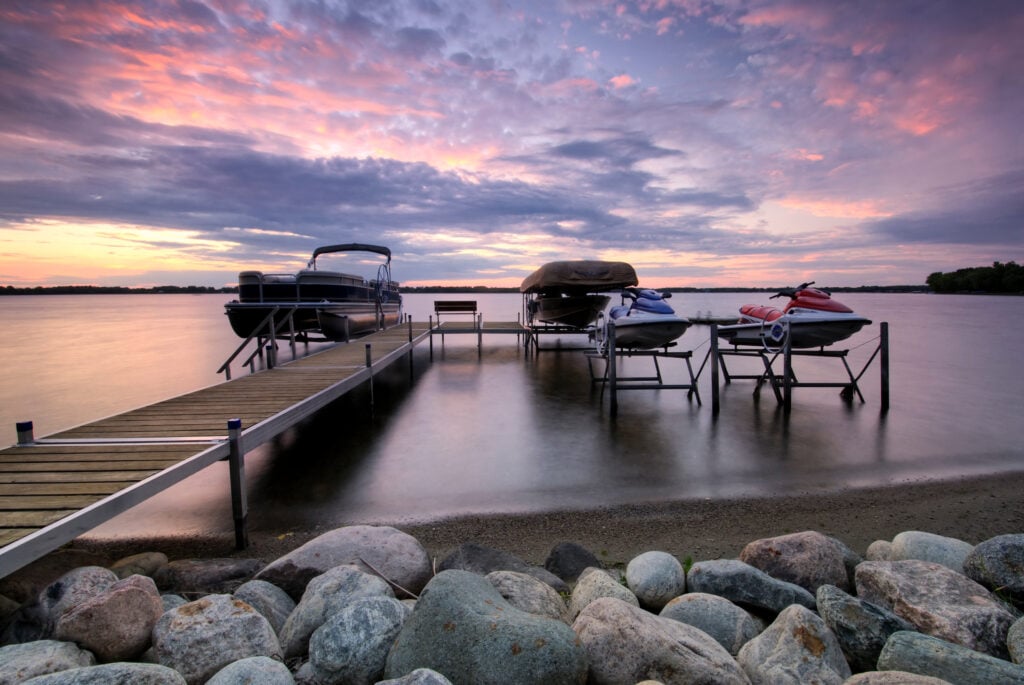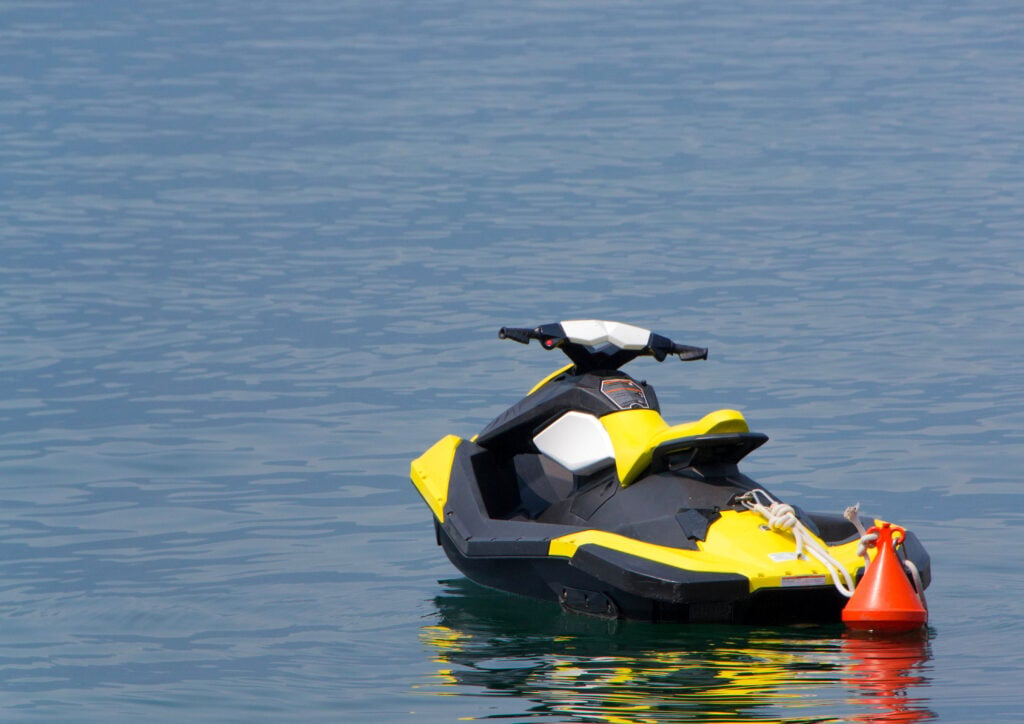
What to Do After Buying an Existing Business
What to Do After Buying an Existing Business The time period after buying a business can be both exciting and stressful. Making an investment into
Whenever you and your family look to have some fun on the water, you should prepare to not only have a good time but also to be safe. Part of that preparation should be to ensure you have appropriate insurance for whatever toy you will be using out on the water, including your personal watercraft. Depending on the state where you use your personal watercraft, liability insurance may be legally required.
A Personal Watercraft (PWC) is, generally speaking, a small recreational watercraft that is usually powered primarily by a water jet pump with the operator standing, kneeling or sitting on top of the watercraft (as opposed to sitting or standing inside the watercraft, such as with a boat). PWC are often referred to by the brand name that produced them. For instance, the names Jet Ski, WaveRunner, and Sea-Doo are regularly used interchangeably with personal watercraft, even though these are names of models produced by various companies. Boating machines, including PWC, are generally classified into four main groups, all based on their length in feet from bow to stern, not including the engine components.
Class A: 16 feet or less
Class 1: 16-26 feet
Class 2: 26-40 feet
Class 3: 40 feet and over
With the average personal watercraft having the length of nearly 11 feet, the normal personal watercraft owner can usually expect their machine to be classified under Class A.

Typically, personal watercraft policies will cover a few basic areas, these being bodily injury, property damage, and medical payments. Policies also tend to include liability coverage. Liability can help provide financial assistance in the event you are found liable in an accident if the accident is deemed coverable. Some examples of situations that may potentially be covered, depending on the coverages you select, are:

What isn’t included in a PWC policy? To understand your policy and exactly what is and isn’t covered, you should carefully read your entire policy. Your agent may also be able to help answer certain questions that you may have. The following are a few examples of what may not be covered include, but are not limited to:
When talking to your agent, you might want to inquire about specific areas of your policy. The following are some coverage options you may want to ask about.

Your jet ski is not just a machine that you spend hours riding, but also memories and time spent with family and friends. Your personal watercraft may also be an investment that you want to protect and care for. One way to do this is by comparing numerous insurance quotes to see what ways you can potentially save. While many websites may show an average price for an insurance company, what you may actually end up paying could be drastically different. Requesting a custom quote for your personal watercraft insurance is a great place to start when it comes to comparing coverages and saving. Contact your local Cross Insurance to connect with one of our agents to start the process today.
Similar to other motorized vehicles, like car, motorcycle, ATV, RV, and snowmobile policies, personal watercraft insurance pricing may vary depending on a variety of factors. To help prepare you for getting your PWC insurance quote, here are some elements that may affect your rate.
Relying solely on your homeowners insurance to help protect you and your watercraft may potentially leave you with less coverage than you might have with a dedicated PWC policy. A homeowners policy usually only provides limited coverage for your personal watercraft. A PWC policy specifically for your watercraft is typically the favorable option, as this usually provides broader coverage and can sometimes be more tailored to meet your needs. Below is what homeowners insurance can potentially help insure in certain situations.
Fire: Depending on the circumstances, if your watercraft catches fire your homeowners insurance could potentially cover some of the repair or replacement costs.
Natural Events: Also known as an “Act of God,” damage to your PWC caused by events such as hurricanes, hail, wind, and other covered weather events may potentially qualify for coverage under your homeowners insurance.
Theft & Vandalism: If your watercraft is stolen from your home or vandalized during a break in, this could potentially qualify for coverage under your homeowners insurance.
Falling Objects: In the event something falls in your basement, garage, or wherever you store your personal watercraft, and it causes damage to your PWC, homeowners insurance may help cover some of the expenses to fix it.
___________________________________________________________________
This article is for general informational purposes only and is not to be relied upon or used for any particular purpose. Cross Insurance shall not be held responsible in any way for, and specifically disclaims any liability arising out of or in any way connected to, reliance on or use of any of the information contained in this article. The information contained or referenced in this article is not intended to constitute and should not be considered legal, insurance, accounting or other professional advice, nor shall it serve as a substitute for the recipient obtaining such advice. The views expressed in this article are that of its author and do not necessarily represent the views of Cross Financial Corp. and its subsidiaries and affiliates (“Cross Insurance”) or Cross Insurance’s management or shareholders.

What to Do After Buying an Existing Business The time period after buying a business can be both exciting and stressful. Making an investment into

Do I Really Need RV Insurance? Just as with any other vehicle, you will need some form of insurance to operate an RV on a

Insurance for Dog Trainers in Connecticut Why Is Insurance for Dog Trainers Important? Being a dog trainer can be a rewarding career. As with any